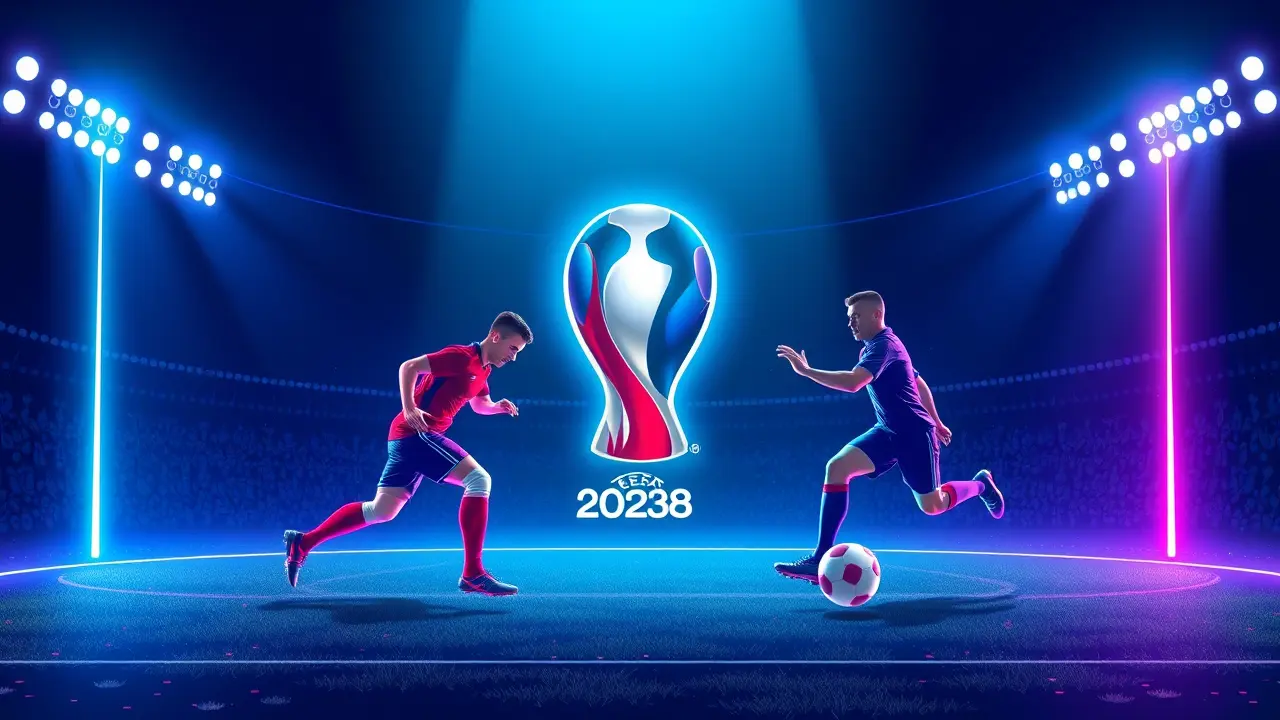Russian Football Union hopes for UEFA readmission for Euro 2028
In a move that underscores the complex and often fraught intersection of global sports and geopolitics, the Russian Football Union (RFU) is publicly clinging to a fragile hope of reintegration into European football's top tier, specifically targeting a place in the qualifying process for UEFA Euro 2028. The sentiment was voiced by RFU Secretary General Maxim Mitrofanov, who, while acknowledging that the question of Russia's readmission was not formally discussed at a recent meeting of UEFA's member federations, pointedly referenced the 'external political situation' as a fluid and potentially mitigating factor.Mitrofanov's statements reveal a strategic optimism, suggesting that UEFA itself may be privately amenable to Russia's return but is constrained by immense external pressure, likely from a coalition of European nations and other stakeholders still deeply opposed to the normalization of Russian sports following the 2022 invasion of Ukraine. This is not merely about football; it's a high-stakes diplomatic chess match being played out on the pitch.For context, UEFA and FIFA acted with rare and decisive unity in February 2022, suspending all Russian national teams and clubs from international competition—a sanction that has frozen Russian football in a state of competitive isolation, akin to a top-tier club being forcibly relegated and barred from all tournaments. The RFU's subsequent, and thus far unsuccessful, attempt to switch its affiliation to the Asian Football Confederation (AFC) further highlighted its desperation and the profound consequences of this exile.The hope for Euro 2028 qualification, therefore, is a monumental long shot, a Hail Mary pass in the dying seconds of a game Russia is currently losing by a significant margin. The analytical lens through which we must view this situation extends beyond the simple desire to play football; it touches on the very soul of the sport's governance.UEFA, under the leadership of Aleksander Čeferin, is caught in a vice. On one side is the fundamental principle that sport should be a unifying force, separate from politics—a principle often honored in the breach but still a core tenet of the Olympic Charter, which influences all international sporting bodies.On the other side is the unyielding reality of a brutal war in Europe and the moral imperative, as seen by many, to maintain a firm stance. The 'pressure' Mitrofanov alludes to is palpable; nations like Ukraine, Poland, England, and the Scandinavian countries have been unequivocal in their threat to boycott any fixture involving Russia, a scenario that would shatter the integrity of the Euro 2028 qualifiers before a ball is even kicked.Imagine the logistical and ethical nightmare for UEFA if a group contained Russia and Ukraine; the draw alone would be a geopolitical firestorm. Furthermore, the precedent set by the ongoing exclusion is powerful.Reinstating Russia without a fundamental and verifiable change in the geopolitical landscape would be seen by many as a capitulation, rewarding a nation that has flouted international law and norms. It would undermine the credibility of sports sanctions as a meaningful tool of international censure.Yet, the RFU's persistence is a calculated gamble. They are banking on what historians of sport call 'sanctions fatigue'—the gradual erosion of resolve over time, where the initial outrage gives way to pragmatic considerations about television revenue, competitive balance, and the sheer commercial appeal of having a major footballing nation back in the fold.The Russian football landscape itself is suffering; without the financial windfall and competitive sharpening of European club competitions like the Champions League, the domestic league risks a slow decline, and the national team, deprived of high-level competitive matches, will see its FIFA ranking plummet, creating a vicious cycle of sporting impoverishment. Expert commentary from figures within sports governance suggests that any potential pathway back would be incremental and conditional, perhaps beginning with youth teams reinstated before any senior squads, and laden with strict neutrality mandates, such as playing in empty neutral venues without flags or anthems—a humiliating but perhaps necessary purgatory.The RFU's hope, therefore, is not just for a change in UEFA's heart, but for a seismic shift in the global political winds. Until then, Mitrofanov's 'hope' remains a political statement as much as a sporting one, a public relations campaign designed to keep the door ajar and apply its own subtle counter-pressure, waiting for the day when the beautiful game's administrative body decides that the time for punishment has passed and the time for precarious reconciliation has begun.
It’s quiet here...Start the conversation by leaving the first comment.
© 2025 Outpoll Service LTD. All rights reserved.
